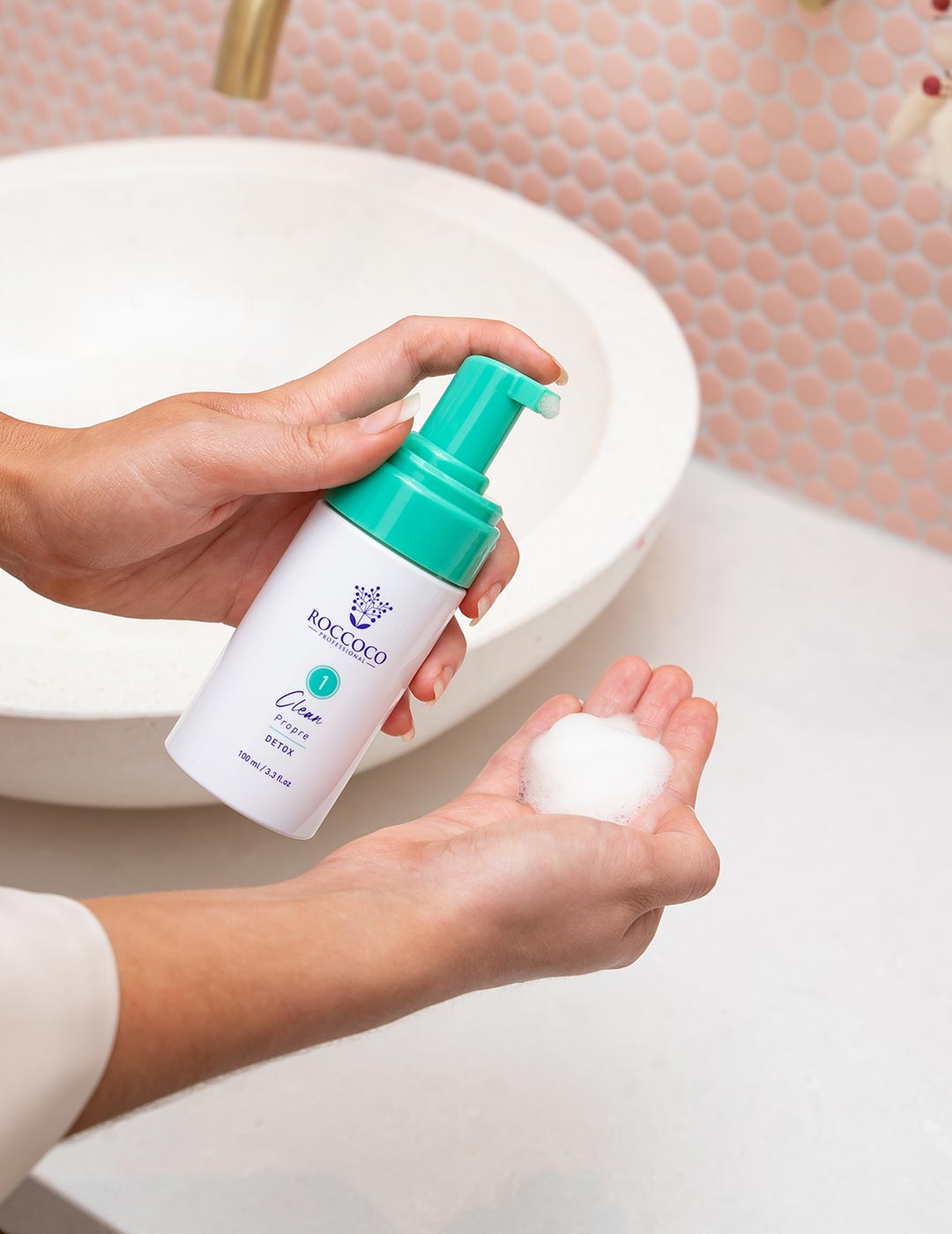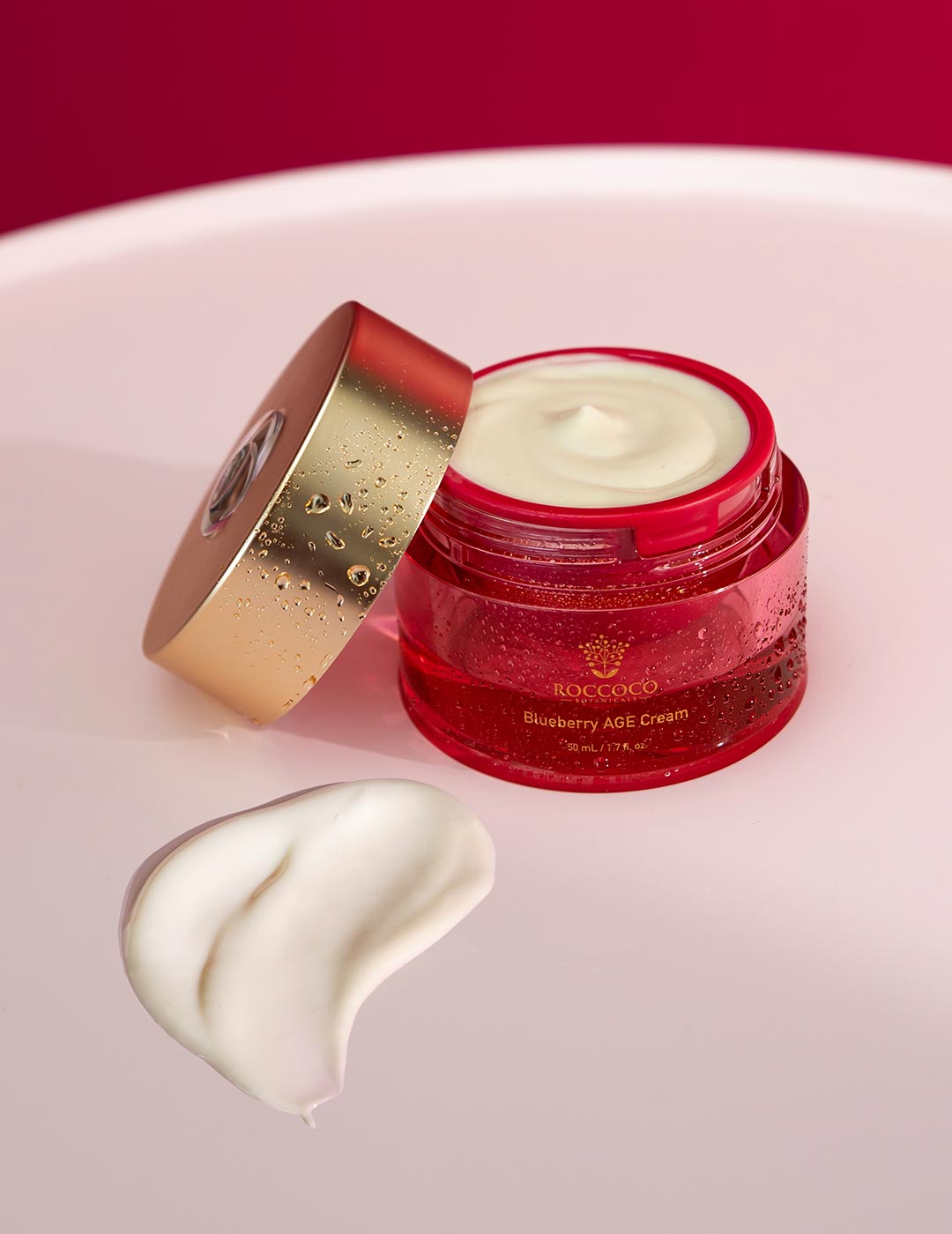When it comes to managing acne, most people immediately reach for spot treatments, cleansers, or oil-control products. But one of the most overlooked and misunderstood parts of an effective acne strategy is exfoliation.
And no, we’re not talking about scrubbing your skin raw with grainy scrubs. We’re talking about intelligent, consistent exfoliation that targets the root issue: how acne-prone skin sheds.
Why Acne Skin Behaves Differently
Normal skin naturally sheds its cells in a fine, even pattern, like sand falling through your fingers. These cells detach one by one, making it easy for them to leave the skin’s surface without causing problems.
Acne-prone skin doesn’t do that.
In acne conditions, skin sheds in sheets rather than grains. Instead of individual cells letting go, clusters of dead skin cells stick together and get trapped inside the follicle. This blocks the pore opening and mixes with oil and bacteria, which sets the stage for breakouts.
This process is called retention hyperkeratosis, and it’s one of the foundational mechanisms behind comedones, congestion, and cystic acne.
Exfoliation: Clearing the Traffic Jam
When skin is shedding in clumps instead of grains, pores get congested quickly. And no amount of cleansing will remove what’s inside the follicle if the top layer is sealed shut.
Exfoliation helps by breaking down these sheets of sticky, dead skin cells. It removes the glue-like bonds that keep them clumped together and allows the follicle to stay clear and functional.
This is what prevents congestion from forming in the first place.
Exfoliation also:
- Improves skin texture and smoothness
- Increases product absorption, especially serums
- Reduces the appearance of old breakouts or scarring
- Helps oxygen flow through the follicle, making it harder for acne bacteria to thrive
Not All Exfoliation Is Created Equal
Acne skin is also usually inflammatory and barrier-impaired, which means the wrong type of exfoliation often makes things worse.
We do not recommend:
- Harsh physical scrubs
- Harsh peels
- Harsh acids
These can damage the barrier, increase sensitivity, and often cause rebound breakouts, especially in already inflamed skin.
Many exfoliants on the market also remove living skin cells along with dead ones, which compromises skin function and slows healing.
Why Roccoco Exfoliants Are Different
Our exfoliants are designed to remove only the dead skin cells, while leaving healthy, living ones untouched. This protects the skin barrier, maintains hydration, and avoids the trauma that leads to inflammation.
We use:
- Enzymes that dissolve the bonds between dead cells without harming active tissue
- Smooth, spherical beads that polish gently without causing micro-tears
- Barrier-safe bases that support hydration and reduce irritation
Every formula is developed with the skin’s natural physiology in mind. No stripping. No stinging. Just functionally clear skin.
How Often Should You Exfoliate?
For severe acne, exfoliating around three times per week can help keep follicles clear and reduce congestion.
Mild to moderate acne may only need exfoliation once or twice a week.
The key is consistency and choosing exfoliants that support the barrier, not inflame it.
Roccoco Exfoliation Picks for Acne-Prone Skin
- Sulfur Mask: Exfoliates, clears congestion, reduces inflammation, and calms active breakouts while supporting the follicle environment.
- BerryBiotic Enzyme: A gentle exfoliant that removes dead skin without compromising the barrier. Great for sensitive and inflamed acne-prone skin.
- Polishing Cleanser: Ideal for skin types that aren’t too sensitive. Uses spherical beads that roll across the skin without scratching or tearing. Helps smooth texture and loosen cellular buildup without triggering inflammation.
Exfoliation isn’t just a “nice to have” step for acne. It’s essential.
Your breakouts will keep coming back until you correct the process.
Not sure what your skin needs?
Book a consultation with one of our skin experts. We’ll assess your skin and provide personalised product recommendations tailored to your concerns and goals.
Read more

Aging doesn’t start when lines show up. It starts when function begins to decline, and that happens sooner than most people think.Not everyone is concerned about aging, and that’s completely fine. ...

Your skin operates on a 24-hour rhythm, just like your brain and hormones. This cycle, known as the circadian rhythm, regulates when your skin defends itself and when it repairs. Every process, fro...



